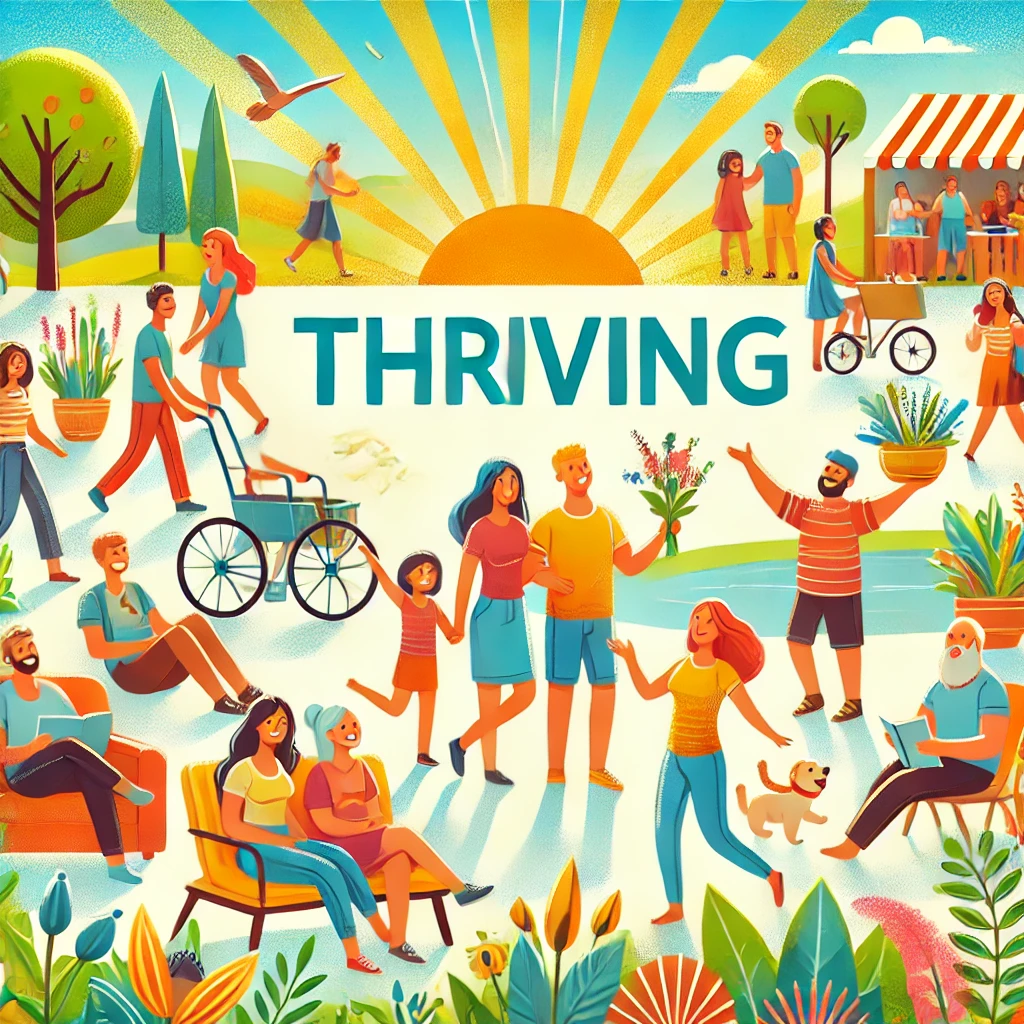Thriving, Struggling, or Suffering? The State of American Well-Being

Recent research from Gallup reveals some striking insights into the well-being of Americans. Among hundreds of thousands surveyed, 49% describe their lives as “thriving,” while 41% are “struggling,” and 10% are “suffering.” These numbers reflect more than just personal emotions—they tell a story of how Americans view their present and future, their physical and mental health, and their daily experiences. Let’s dive deeper into each of these groups and explore what it means to be thriving, struggling, or suffering in today’s world.
Thriving: A Life of Happiness, Enjoyment, and Balance
The “thriving” group consists of people who experience a high level of well-being. They frequently feel happiness and enjoyment without much stress or worry. Not only do they have positive views of their current lives, but they also look forward to a bright future. Thriving people typically:
- Experience significantly fewer health problems and take fewer sick days.
- Report less daily stress, sadness, anger, and worry.
- Have a strong sense of happiness, enjoyment, and respect.
- Spend an average of 6-9 hours each day socializing, whether at work, with family, or engaging in leisure activities.
For these individuals, life is generally fulfilling, and they can benefit from resources aimed at enhancing performance and optimizing their lives. Self-improvement avenues such as coaching, courses, books, and social groups can help them continue to grow and improve.
Struggling: A State of Inconsistency and Moderate Well-Being
While nearly half of Americans are thriving, a large portion—41%—find themselves “struggling.” This group faces more challenges and instability in their well-being. They may have mixed or inconsistent feelings about their present life situation and hold moderate to negative views of their future. The characteristics of struggling individuals include:
- A lower level of daily happiness and enjoyment, and more frequent stress and worry.
- Moderate views of their current circumstances, with concerns about what lies ahead.
- Increased stress and worry about financial matters, leading to double the amount of sick days compared to those thriving.
- Greater likelihood to smoke and less likelihood to maintain a healthy diet.
Struggling individuals can benefit significantly from mental health coaching, self-help programs, and life-skills development. Resources such as community groups, church-based programs, books, and process groups can provide valuable support to help improve their situation.
Suffering: A Life Overwhelmed by Stress and Worry
The most at-risk group, comprising 10% of Americans, is categorized as “suffering.” These individuals report low well-being and face daily challenges that significantly impact their quality of life. They often have negative perceptions of both their current situation and their future prospects. Key aspects of suffering individuals include:
- Intense daily stress and worry that overshadows their moments of happiness and enjoyment.
- Poor ratings of their current life situation, with a bleak outlook on the next five years.
- A greater likelihood of lacking basic necessities like food and shelter.
- A higher tendency to suffer from physical pain, sadness, anger, and mental health issues.
- Limited access to health insurance, care, and higher levels of disease burden compared to those thriving.
People in this category often represent a clinical population who would greatly benefit from professional counseling, support groups, and recovery programs. Connecting with qualified professionals who offer compassionate care and practical strategies is essential for those seeking to rebuild their lives and move toward a more hopeful future.
Finding Support: Moving from Struggling or Suffering to Thriving
If you find yourself in the struggling or suffering category, it’s important to know that help is available and change is possible. At MyCounselor.Online, our team of professional Christian counselors is committed to helping individuals overcome life’s challenges and start thriving. Whether you’re facing daily stress, struggling with relationships, or dealing with anxiety about the future, we are here to support you.
Take the first step today by scheduling a matching meeting with one of our compassionate counselors. Together, we’ll work towards a brighter, more hopeful future. Your journey to well-being starts now.
Ready to start your journey? Reach out to MyCounselor.Online and begin your path to thriving.
REFERENCES